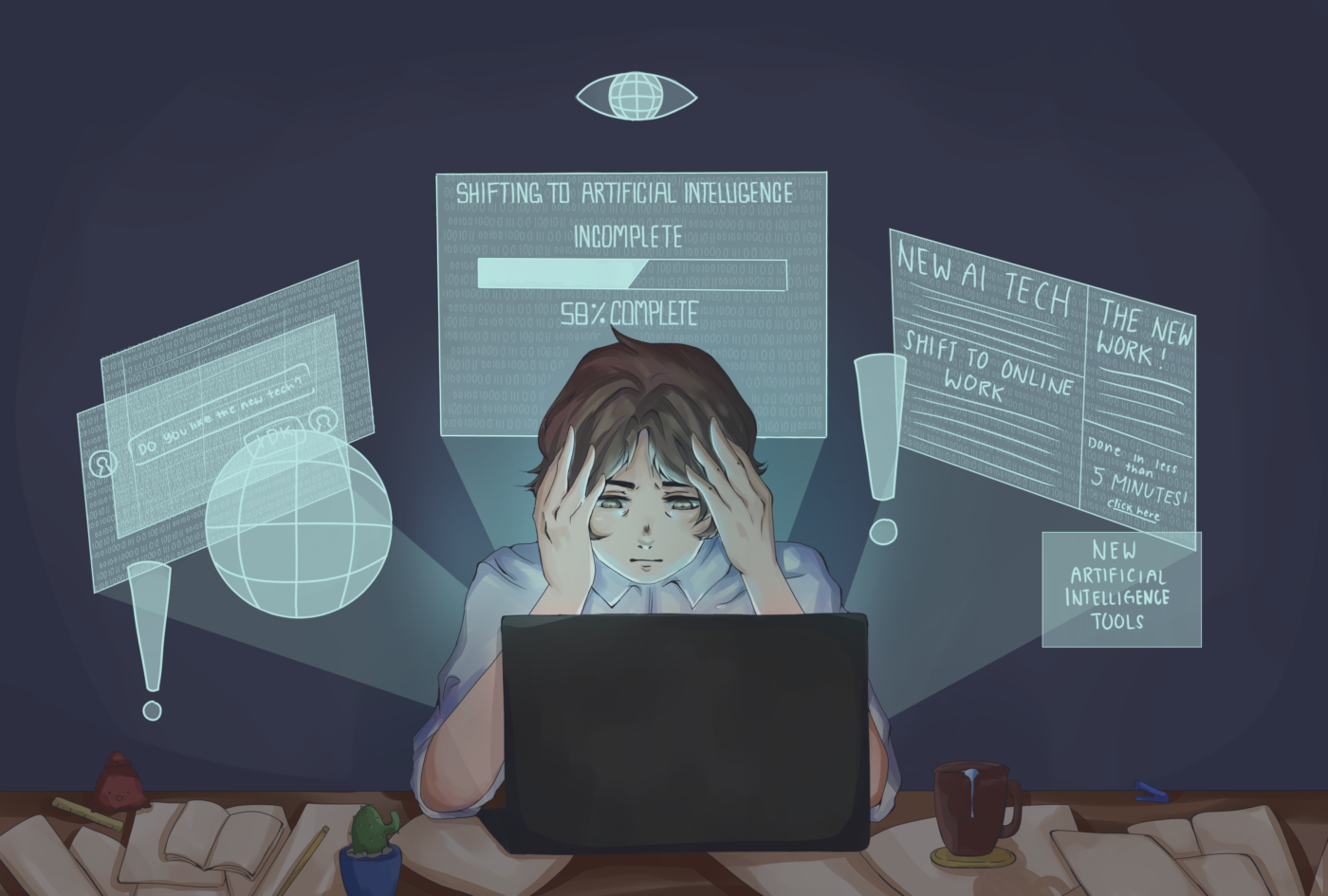THE ABILITY to analyze and generate vast amounts of data in a split second has made Artificial Intelligence (AI) technology integral in numerous industries. From specialized chatbots to computer vision AIs, this advancement in technology both solves convenience issues and increases the efficiency of processes that would otherwise be carried out by human labor.
However, despite the ease AI will bring, the Philippines has yet to fully maximize its potential. According to Kyndryl, an information technology infrastructure services provider, roughly only 10% of surveyed businesses in the country have developed a strategy for data and AI. As such, it is important for the country to rapidly adjust to these technological advancements to keep up with the global market.
Yellow stoplight
It is evident that the Philippines is lagging behind neighboring countries in terms of its digital transformation. University of the Philippines Artificial Intelligence Program Coordinator Eugene Rex L. Jalao, PhD noted that a lot of the supply chain systems in Filipino companies remain manual. “Some are automating, but [they are] still in the stage that keeps and processes data as is—not at the data science and AI level yet,” Jalao said.
This hesitance may be linked to 80% of surveyed world enterprise leaders seeing the shift to a new form of technology as disruptive to operations. According to Jalao, the same can be said for firms in the Philippines, even when the shift to AI technology is set to bring more than USD 92 billion to the Philippine economy. On the practical end, Jalao noted that AI will automate a lot of manual work, standardize output, and speed up production. The eventual automation of supply chain systems in the aspects of production, quality control, and accident and breakdown prevention may also lead to lower production costs in the long run. All in all, AI could potentially bring the country to par with international industries and standards.
The public’s perception of AI has also affected the move toward the automation of day-to-day functions. Jalao cited that Filipinos are “afraid of AI” because they have a misconception that AI would behave like how it is depicted in popular Hollywood movies like The Terminator (1984) and The Matrix (1999). In the workplace, laborers fear that AI will replace them altogether.
According to Jalao, however, the integration of AI into work could be likened to the shift from typewriters to typists. Rather than totally phasing out human labor, capital may instead be invested in upskilling the workforce so as to train employees in managing, assisting, and maintaining the technology. The costs of investing, constructing, and maintaining the technology are also bound to have an initial negative impact on a company’s finances.
Greenlighting AI
In anticipation of the eventual expansion of AI technology, Jalao said that the government carries the responsibility to come up with laws on handling AI. Although a roadmap exists for AI use in industry and Republic Act 11927 mentions AI, there is currently no law that comprehensively tackles the issue. House Bill 10457 for the establishment of a national AI strategy was filed in 2021 but is still in committee. The list of policies that need to be settled includes resolving intellectual property issues on work generated by AI and safety concerns regarding data stored in AI. “Guidelines on how to leverage AI in companies and organizations [as well],” Jalao added. “If ever [a company] will use AI, the displaced workers should be upskilled or compensated.”
The need for investment in AI research, funding, and scholarships for AI programs in the country is also important, according to Jalao. Currently, transforming education remains one of the government’s recommendations through its National AI Strategy. “Baka in the future, we might have to pay [other countries for their AI technology]. Baka wala tayong contribution (We might not have any contribution),” Jalao warned.
Even with well-substantiated support from the government and academia, however, AI technology can still be met with unwillingness and pushback. “[It is] useless to go against it because we might live in a world wherein everything is AI-assisted,” Jalao emphasized regarding the inevitability of AI development in the country. While there is resistance to the widespread adoption of AI due to potential disruptions to labor demand and daily life, it similarly holds potential to enhance value chains and production quality.
In totality, a gradual and well-supported shift to AI technology would benefit both the labor industry and, subsequently, the economy. At the rate at which the country is going, it may take a few years to get to the level other countries are currently at. As such, government support is vital and the country’s receptiveness to changes must consistently be worked on.




